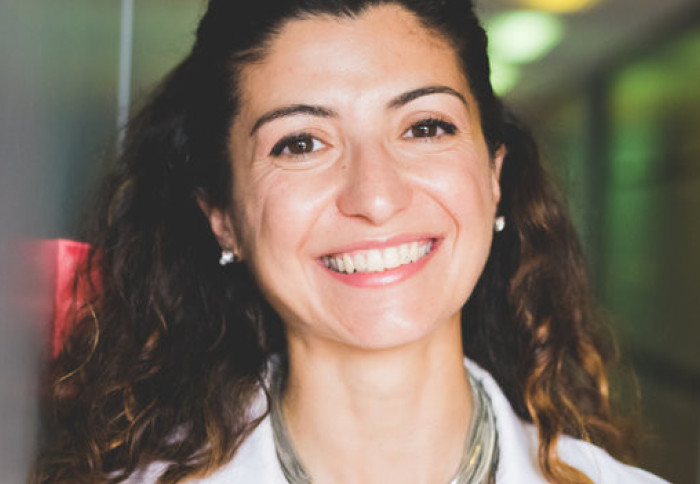Dr Alessandra Pinna awarded June Wilson Award 2021

Dr Alessandra Pinna has been named the winner of the June Wilson award 2021.
The award recognises a female student or an early-stage female scientist who has demonstrated excellence in any relevant area of materials science and engineering. It has a prize of up to £3000 and honours the pioneering contributions made to the field of biomedical materials by June Wilson.
Dr Pinna is an Imperial College Research Fellow, sponsored by Professor Alexandra Porter in the Department of Materials and Professor Robert Wilkinson from the Crick Institute.
She said: "It’s an absolute honour to be nominated as the winner of June Wilson Award. June Wilson, one of the first women to investigate the histopathology of materials and to obtain FDA approval of clinical use of bioactive glasses, is such an inspiration for me."
Current research into drug delivery
Dr Pinna's long term research interests involve the development of novel nanostructured ceramic and hybrid organic-inorganic coatings, nanoparticles and nanocomposites for biomedical applications, with a particular interest in drug delivery, antimicrobials and antioxidants.
She is also leading research projects in ceramics and glasses as therapeutic nanoparticles for the treatment of Tuberculous Meningitis, Osteoporosis and breast cancer.
This award is the motivation to keep going on the road I’ve been heading down and trying to make my best despite the difficult time in this pandemic. Dr Alessandra Pinna
Currently, Dr Pinna is working to develop a new nano-vehicle that can deliver antimicrobials and anti-inflammatories directly inside the brain.
In further detail, her research has discovered that “spiky” nanoparticles can cross the blood-brain barrier in significant amounts and that silica mesoporous nanostars are better internalised by cells than spherical particles.
The novel multifunctional therapeutic nanostars that cross the blood-brain barrier and deliver the targeted drug to the brain could be a highly promising strategy to tackle early-stage Tuberculous Meningitis and other brain diseases.
Article text (excluding photos or graphics) © Imperial College London.
Photos and graphics subject to third party copyright used with permission or © Imperial College London.
Reporter
Kayleigh Brewer
Department of Materials